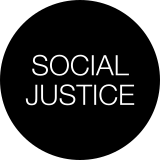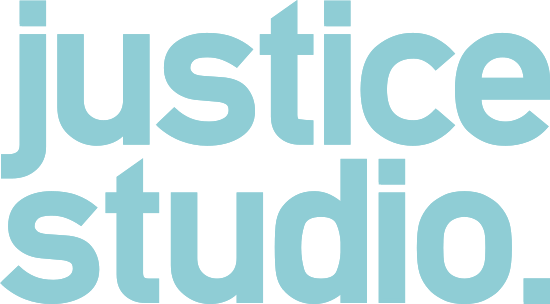SOCIAL JUSTICE
All of our work incorporates social justice.
It encompasses all inequalities such as
discrimination by colour, religion, age, or ability.
Our work promotes key rights such as to home,
health and education. We work in emergency and
conflict settings, in migration and refugees and into
how pandemics exacerbate existing inequalities.






SOCIAL JUSTICE
All of our work incorporates social justice.
It encompasses all inequalities such as discrimination by colour, religion, age, or ability.
Our work promotes key rights such as to a home, health and education. We work in emergency and conflict settings, in migration and refugees and into how pandemics exacerbate existing inequalities.

Whilst all of our work addresses social justice, here are some examples:
| We are working with the Equality and Human Rights Commission to evaluate the impacts of two formal inquiries related to human rights and protected characteristics in Great Britain: racial harassment in higher education and restraint and seclusion in schools. For both inquiries, we are monitoring media, and parliamentary mentions to track trends as well as interviewing policy, education, and administration and complaints stakeholders | |
 |
Anthony Nolan commissioned us to undertake research into the experiences of Bone Marrow Transplant patients returning to work. We designed and carried out a survey, held focus groups and telephone interviews with patients, their family members and their employers on their experiences following their transplant. The resulting report was used to support Anthony Nolan’s calls for improved post-transplant care and formed part of the evidence base for their policy work and their support of employers and patients. |
   |
During 2016 we worked for the National Autistic Society to evaluate a new initiative: the ‘My Hospital Passport’ which was launched in July 2014 designed to improve communication between patients and families and the health professionals who are treating or caring for them. The evaluation assessed the NAS Autism Hospital Passport’s effectiveness and impact through a survey with autistic people, their families, and healthcare professionals and face-to-face focus groups in secure and medium security health facilities. |


Justice Studio’s international social justice projects span many different contexts. For example:
| We worked with the Danish Refugee Council to evaluate their Community Driven Recovery and Development programme aimed at improving governance and security among communities in Doolow, Somalia. We carried out a household survey of 562 households in 15 villages and consulted with Local government officials, elders and religious leaders, women and youth representatives. | |
  |
In 2017 With Penal Reform International and the Netherlands Helsinki Committee, we developed and delivered a training programme for prison monitors from Serbia, Macedonia and Kosovo. The training used audio visuals, adult learning techniques and participation in a monitoring visit to a children’s correctional centre in Kosovo. |
| We evaluated the AUD 35.7million Children of Uruzgan programme with Atkis Strategy for Save the Children which focused on increasing access and use of maternal and child health services including the treatment of acute malnutrition, and increasing access to basic education services for children. The evaluation was conducted according to do-no-harm principles and leading ethical guidelines and used a results orientated evaluation methodology which looked at outputs, outcomes, effectiveness, sustainability, and equity. |


The COVID-19 pandemic hit the world in 2020 with a rapid and far reaching impact. Justice Studio immediately began tailoring our research services to adapt to the crisis as well as carrying out important research into the social consequences. For example:
   |
As lockdown measures were instigated, we designed and rapidly implemented a pro bono peer research project into the consequences for older people with underlying conditions in isolation during stay-at-home orders in the UK, USA and Spain. We engaged and trained older people in the three target countries to interview their peers at three points in time (the beginning middle and end of the lockdown period) and conducted two surveys across the three countries. |
|
|
Justice Studio carried out pro-bono research for Solace Women’s Aid on the impact of UK lockdown measures on domestic abuse during the COVID-19 pandemic. We conducted in-depth interviews with women in emergency hostel accommodation in London, as well as semi-structured interviews with Solace staff and management. Our research assessed the current needs and barriers to effective domestic abuse support, as well as how the lockdown measures affected women’s experiences as survivors. |
  |
We are working with Valid Research and the Bradford Institute for Health Research (University of Leeds, University of Bradford, the NHS) to complete a qualitative study with pregnant women and new mothers during the Covid-19 pandemic. This includes phone interviews across the nine months following the lockdown with a representative sample of women local to Bradford, England who are pregnant or have recently given birth. |


Justice Studio has been increasingly undertaking projects that tackle homelessness and aim to improve housing in the UK and internationally. For example:
   |
During 2016 we undertook a client engagement project for a consortium of Crisis, Thames Reach, St Mungos and Mind in the City, Hackney and Waltham Forest. The project explored how these partners could improve employment support for workless people who are experiencing severe and multiple disadvantage. We used a mixed qualitative and quantitative methodology including a survey co-created with community researchers who had experienced homelessness. |
  |
Justice Studio is conducting an impact and process evaluation of the World Habitat Support Programme and the European End Street Homelessness Campaign (EESHC). Our assessment spans eleven Campaign Cities across five European countries (Scotland, England, Spain, Belgium, and Slovakia) and the critical success factors that have led to meaningful change across the Campaign cities as well as the overall Theory of Change. |
  |
We worked with br-research on an evaluation of a Big Lottery funded programme at the 999 Club, a homelessness charity in South London. We conducted semi-structured interviews with clients to understand their client journeys, the opportunities 999 has provided, their experiences of the services and staff at 999 Club and completed in-person surveys with clients to measure their outcomes and satisfaction with the 999 Club’s services. |


Your Title Goes Here
Whilst all of our work addresses social justice, here are some examples:
| We are working with the Equality and Human Rights Commission to evaluate the impacts of two formal inquiries related to human rights and protected characteristics in Great Britain: racial harassment in higher education and restraint and seclusion in schools. For both inquiries, we are monitoring media, and parliamentary mentions to track trends as well as interviewing policy, education, and administration and complaints stakeholders | |
   |
Anthony Nolan commissioned us to undertake research into the experiences of Bone Marrow Transplant patients returning to work. We designed and carried out a survey, held focus groups and telephone interviews with patients, their family members and their employers on their experiences following their transplant. The resulting report was used to support Anthony Nolan’s calls for improved post-transplant care and formed part of the evidence base for their policy work and their support of employers and patients. |
   |
During 2016 we worked for the National Autistic Society to evaluate a new initiative: the ‘My Hospital Passport’ which was launched in July 2014 designed to improve communication between patients and families and the health professionals who are treating or caring for them. The evaluation assessed the NAS Autism Hospital Passport’s effectiveness and impact through a survey with autistic people, their families, and healthcare professionals and face-to-face focus groups in secure and medium security health facilities. |



